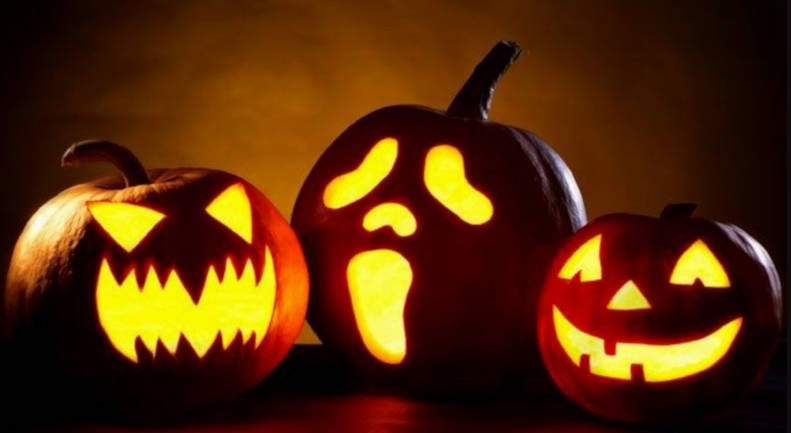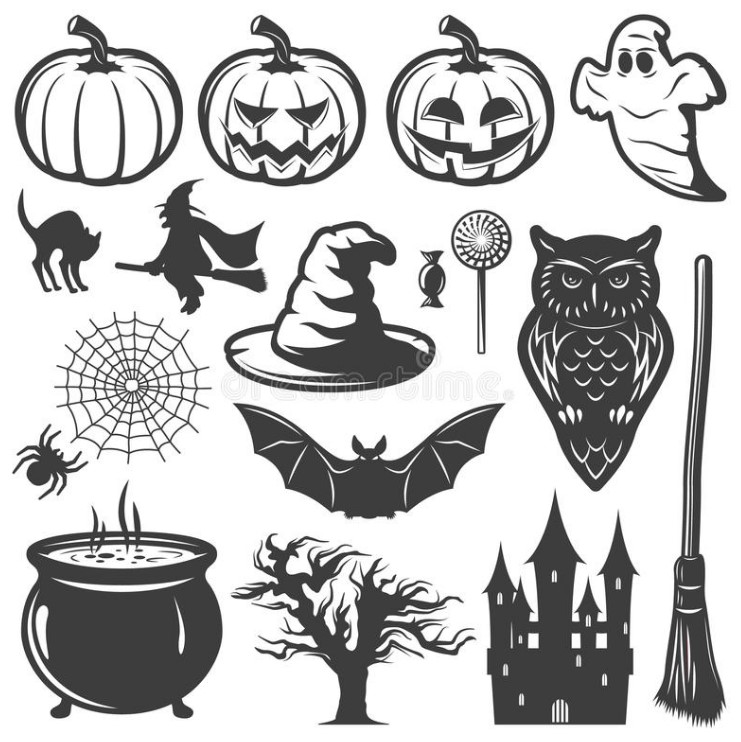
Recursos Educativos en Inglés - Stories in English
Cuentos clásicos en inglés
The Trial For Murder - Charles Dickens
I have always noticed a prevalent want of courage, even among persons of superior intelligence and culture, as to imparting their own psychological experiences when those have been of a strange sort. Almost all men are afraid that what they could relate in such wise would find no parallel or response in a listener's internal life, and might be suspected or laughed at. A truthful traveller, who should have seen some extraordinary creature in the likeness of a sea-serpent, would have no fear of mentioning it; but the same traveller, having had some singular presentiment, impulse, vagary of thought, vision (so-called), dream, or other remarkable mental impression, would hesitate considerably before he would own to it. To this reticence I attribute much of the obscurity in which such subjects are involved. We do not habitually communicate our experiences of these subjective things as we do our experiences of objective creation. The consequence is, that the general stock of experience in this regard appears exceptional, and really is so, in respect of being miserably imperfect.
In what I am going to relate, I have no intention of setting up, opposing, or supporting, any theory whatever. I know the history of the Bookseller of Berlin, I have studied the case of the wife of a late Astronomer Royal as related by Sir David Brewster, and I have followed the minutest details of a much more remarkable case of Spectral Illusion occurring within my private circle of friends. It may be necessary to state as to this last, that the sufferer (a lady) was in no degree, however distant, related to me. A mistaken assumption on that head might suggest an explanation of a part of my own case, -- but only a part, -- which would be wholly without foundation. It cannot be referred to my inheritance of any developed peculiarity, nor had I ever before any at all similar experience, nor have I ever had any at all similar experience since.
It does not signify how many years ago, or how few, a certain murder was committed in England, which attracted great attention. We hear more than enough of murderers as they rise in succession to their atrocious eminence, and I would bury the memory of this particular brute, if I could, as his body was buried, in Newgate Jail. I purposely abstain from giving any direct clue to the criminal's individuality.
When the murder was first discovered, no suspicion fell -- or I ought rather to say, for I cannot be too precise in my facts, it was nowhere publicly hinted that any suspicion fell -- on the man who was afterwards brought to trial. As no reference was at that time made to him in the newspapers, it is obviously impossible that any description of him can at that time have been given in the newspapers. It is essential that this fact be remembered.
Unfolding at breakfast my morning paper, containing the account of that first discovery, I found it to be deeply interesting, and I read it with close attention. I read it twice, if not three times. The discovery had been made in a bedroom, and, when I laid down the paper, I was aware of a flash -- rush -- flow -- I do not know what to call it, -- no word I can find is satisfactorily descriptive, -- in which I seemed to see that bedroom passing through my room, like a picture impossibly painted on a running river. Though almost instantaneous in its passing, it was perfectly clear; so clear that I distinctly, and with a sense of relief, observed the absence of the dead body from the bed.
It was in no romantic place that I had this curious sensation, but in chambers in Piccadilly, very near to the corner of St. James's Street. It was entirely new to me. I was in my easy-chair at the moment, and the sensation was accompanied with a peculiar shiver which started the chair from its position. (But it is to be noted that the chair ran easily on castors.) I went to one of the windows (there are two in the room, and the room is on the second floor) to refresh my eyes with the moving objects down in Piccadilly. It was a bright autumn morning, and the street was sparkling and cheerful. The wind was high. As I looked out, it brought down from the Park a quantity of fallen leaves, which a gust took, and whirled into a spiral pillar. As the pillar fell and the leaves dispersed, I saw two men on the opposite side of the way, going from West to East. They were one behind the other. The foremost man often looked back over his shoulder. The second man followed him, at a distance of some thirty paces, with his right hand menacingly raised. First, the singularity and steadiness of this threatening gesture in so public a thoroughfare attracted my attention; and next, the more remarkable circumstance that nobody heeded it. Both men threaded their way among the other passengers with a smoothness hardly consistent even with the action of walking on a pavement; and no single creature, that I could see, gave them place, touched them, or looked after them. In passing before my windows, they both stared up at me. I saw their two faces very distinctly, and I knew that I could recognise them anywhere. Not that I had consciously noticed anything very remarkable in either face, except that the man who went first had an unusually lowering appearance, and that the face of the man who followed him was of the colour of impure wax.
I am a bachelor, and my valet and his wife constitute my whole establishment. My occupation is in a certain Branch Bank, and I wish that my duties as head of a Department were as light as they are popularly supposed to be. They kept me in town that autumn, when I stood in need of change. I was not ill, but I was not well. My reader is to make the most that can be reasonably made of my feeling jaded, having a depressing sense upon me of a monotonous life, and being "slightly dyspeptic." I am assured by my renowned doctor that my real state of health at that time justifies no stronger description, and I quote his own from his written answer to my request for it.
As the circumstances of the murder, gradually unravelling, took stronger and stronger possession of the public mind, I kept them away from mine by knowing as little about them as was possible in the midst of the universal excitement. But I knew that a verdict of Wilful Murder had been found against the suspected murderer, and that he had been committed to Newgate for trial. I also knew that his trial had been postponed over one Sessions of the Central Criminal Court, on the ground of general prejudice and want of time for the preparation of the defence. I may further have known, but I believe I did not, when, or about when, the Sessions to which his trial stood postponed would come on.
My sitting-room, bedroom, and dressing-room, are all on one floor. With the last there is no communication but through the bedroom. True, there is a door in it, once communicating with the staircase; but a part of the fitting of my bath has been -- and had then been for some years -- fixed across it. At the same period, and as a part of the same arrangement, -- the door had been nailed up and canvased over.
I was standing in my bedroom late one night, giving some directions to my servant before he went to bed. My face was towards the only available door of communication with the dressing-room, and it was closed. My servant's back was towards that door. While I was speaking to him, I saw it open, and a man look in, who very earnestly and mysteriously beckoned to me. That man was the man who had gone second of the two along Piccadilly, and whose face was of the colour of impure wax.
The figure, having beckoned, drew back, and closed the door. With no longer pause than was made by my crossing the bedroom, I opened the dressing-room door, and looked in. I had a lighted candle already in my hand. I felt no inward expectation of seeing the figure in the dressing-room, and I did not see it there.
Conscious that my servant stood amazed, I turned round to him, and said: "Derrick, could you believe that in my cool senses I fancied I saw a --" As I there laid my hand upon his breast, with a sudden start he trembled violently, and said, "O Lord, yes, sir! A dead man beckoning!"
Now I do not believe that this John Derrick, my trusty and attached servant for more than twenty years, had any impression whatever of having seen any such figure, until I touched him. The change in him was so startling, when I touched him, that I fully believe he derived his impression in some occult manner from me at that instant.
I bade John Derrick bring some brandy, and I gave him a dram, and was glad to take one myself. Of what had preceded that night's phenomenon, I told him not a single word. Reflecting on it, I was absolutely certain that I had never seen that face before, except on the one occasion in Piccadilly. Comparing its expression when beckoning at the door with its expression when it had stared up at me as I stood at my window, I came to the conclusion that on the first occasion it had sought to fasten itself upon my memory, and that on the second occasion it had made sure of being immediately remembered.
I was not very comfortable that night, though I felt a certainty, difficult to explain, that the figure would not return. At daylight I fell into a heavy sleep, from which I was awakened by John Derrick's coming to my bedside with a paper in his hand.
This paper, it appeared, had been the subject of an altercation at the door between its bearer and my servant. It was a summons to me to serve upon a Jury at the forthcoming Sessions of the Central Criminal Court at the Old Bailey. I had never before been summoned on such a Jury, as John Derrick well knew. He believed -- I am not certain at this hour whether with reason or otherwise -- that that class of Jurors were customarily chosen on a lower qualification than mine, and he had at first refused to accept the summons. The man who served it had taken the matter very coolly. He had said that my attendance or non-attendance was nothing to him; there the summons was; and I should deal with it at my own peril, and not at his.
For a day or two I was undecided whether to respond to this call, or take no notice of it. I was not conscious of the slightest mysterious bias, influence, or attraction, one way or other. Of that I am as strictly sure as of every other statement that I make here. Ultimately I decided, as a break in the monotony of my life, that I would go.
The appointed morning was a raw morning in the month of November. There was a dense brown fog in Piccadilly, and it became positively black and in the last degree oppressive East of Temple Bar. I found the passages and staircases of the Court-House flaringly lighted with gas, and the Court itself similarly illuminated. I THINK that, until I was conducted by officers into the Old Court and saw its crowded state, I did not know that the Murderer was to be tried that day. I THINK that, until I was so helped into the Old Court with considerable difficulty, I did not know into which of the two Courts sitting my summons would take me. But this must not be received as a positive assertion, for I am not completely satisfied in my mind on either point.
I took my seat in the place appropriated to Jurors in waiting, and I looked about the Court as well as I could through the cloud of fog and breath that was heavy in it. I noticed the black vapour hanging like a murky curtain outside the great windows, and I noticed the stifled sound of wheels on the straw or tan that was littered in the street; also, the hum of the people gathered there, which a shrill whistle, or a louder song or hail than the rest, occasionally pierced. Soon afterwards the Judges, two in number, entered, and took their seats. The buzz in the Court was awfully hushed. The direction was given to put the Murderer to the bar. He appeared there. And in that same instant I recognised in him the first of the two men who had gone down Piccadilly.
If my name had been called then, I doubt if I could have answered to it audibly. But it was called about sixth or eighth in the panel, and I was by that time able to say, "Here!" Now, observe. As I stepped into the box, the prisoner, who had been looking on attentively, but with no sign of concern, became violently agitated, and beckoned to his attorney. The prisoner's wish to challenge me was so manifest, that it occasioned a pause, during which the attorney, with his hand upon the dock, whispered with his client, and shook his head. I afterwards had it from that gentleman, that the prisoner's first affrighted words to him were, "AT ALL HAZARDS, CHALLENGE THAT MAN!" But that, as he would give no reason for it, and admitted that he had not even known my name until he heard it called and I appeared, it was not done.
Both on the ground already explained, that I wish to avoid reviving the unwholesome memory of that Murderer, and also because a detailed account of his long trial is by no means indispensable to my narrative, I shall confine myself closely to such incidents in the ten days and nights during which we, the Jury, were kept together, as directly bear on my own curious personal experience. It is in that, and not in the Murderer, that I seek to interest my reader. It is to that, and not to a page of the Newgate Calendar, that I beg attention.
I was chosen Foreman of the Jury. On the second morning of the trial, after evidence had been taken for two hours (I heard the church clocks strike), happening to cast my eyes over my brother jurymen, I found an inexplicable difficulty in counting them. I counted them several times, yet always with the same difficulty. In short, I made them one too many.
I touched the brother jurymen whose place was next me, and I whispered to him, "Oblige me by counting us." He looked surprised by the request, but turned his head and counted. "Why," says he, suddenly, "we are Thirt-; but no, it's not possible. No. We are twelve."
According to my counting that day, we were always right in detail, but in the gross we were always one too many. There was no appearance -- no figure -- to account for it; but I had now an inward foreshadowing of the figure that was surely coming.
The Jury were housed at the London Tavern. We all slept in one large room on separate tables, and we were constantly in the charge and under the eye of the officer sworn to hold us in safe-keeping. I see no reason for suppressing the real name of that officer. He was intelligent, highly polite, and obliging, and (I was glad to hear) much respected in the City. He had an agreeable presence, good eyes, enviable black whiskers, and a fine sonorous voice. His name was Mr. Harker.
When we turned into our twelve beds at night, Mr. Harker's bed was drawn across the door. On the night of the second day, not being disposed to lie down, and seeing Mr. Harker sitting on his bed, I went and sat beside him, and offered him a pinch of snuff. As Mr. Harker's hand touched mine in taking it from my box, a peculiar shiver crossed him, and he said, "Who is this?"
Following Mr. Harker's eyes, and looking along the room, I saw again the figure I expected, -- the second of the two men who had gone down Piccadilly. I rose, and advanced a few steps; then stopped, and looked round at Mr. Harker. He was quite unconcerned, laughed, and said in a pleasant way, "I thought for a moment we had a thirteenth juryman, without a bed. But I see it is the moonlight."
Making no revelation to Mr. Harker, but inviting him to take a walk with me to the end of the room, I watched what the figure did. It stood for a few moments by the bedside of each of my eleven brother jurymen, close to the pillow. It always went to the right-hand side of the bed, and always passed out crossing the foot of the next bed. It seemed, from the action of the head, merely to look down pensively at each recumbent figure. It took no notice of me, or of my bed, which was that nearest to Mr. Harker's. It seemed to go out where the moonlight came in, through a high window, as by an aerial flight of stairs.
Next morning at breakfast, it appeared that everybody present had dreamed of the murdered man last night, except myself and Mr. Harker.
I now felt as convinced that the second man who had gone down Piccadilly was the murdered man (so to speak), as if it had been borne into my comprehension by his immediate testimony. But even this took place, and in a manner for which I was not at all prepared.
On the fifth day of the trial, when the case for the prosecution was drawing to a close, a miniature of the murdered man, missing from his bedroom upon the discovery of the deed, and afterwards found in a hiding-place where the Murderer had been seen digging, was put in evidence. Having been identified by the witness under examination, it was handed up to the Bench, and thence handed down to be inspected by the Jury. As an officer in a black gown was making his way with it across to me, the figure of the second man who had gone down Piccadilly impetuously started from the crowd, caught the miniature from the officer, and gave it to me with his own hands, at the same time saying, in a low and hollow tone, -- before I saw the miniature, which was in a locket, --"I WAS YOUNGER THEN, AND MY FACE WAS NOT THEN DRAINED OF BLOOD." It also came between me and the brother juryman to whom I would have given the miniature, and between him and the brother juryman to whom he would have given it, and so passed it on through the whole of our number, and back into my possession. Not one of them, however, detected this.
At table, and generally when we were shut up together in Mr. Harker's custody, we had from the first naturally discussed the day's proceedings a good deal. On that fifth day, the case for the prosecution being closed, and we having that side of the question in a completed shape before us, our discussion was more animated and serious. Among our number was a vestryman, -- the densest idiot I have ever seen at large, -- who met the plainest evidence with the most preposterous objections, and who was sided with by two flabby parochial parasites; all the three impanelled from a district so delivered over to Fever that they ought to have been upon their own trial for five hundred Murders. When these mischievous blockheads were at their loudest, which was towards midnight, while some of us were already preparing for bed, I again saw the murdered man. He stood grimly behind them, beckoning to me. On my going towards them, and striking into the conversation, he immediately retired. This was the beginning of a separate series of appearances, confined to that long room in which we were confined. Whenever a knot of my brother jurymen laid their heads together, I saw the head of the murdered man among theirs. Whenever their comparison of notes was going against him, he would solemnly and irresistibly beckon to me.
It will be borne in mind that down to the production of the miniature, on the fifth day of the trial, I had never seen the Appearance in Court. Three changes occurred now that we entered on the case for the defence. Two of them I will mention together, first. The figure was now in Court continually, and it never there addressed itself to me, but always to the person who was speaking at the time. For instance: the throat of the murdered man had been cut straight across. In the opening speech for the defence, it was suggested that the deceased might have cut his own throat. At that very moment, the figure, with its throat in the dreadful condition referred to (this it had concealed before), stood at the speaker's elbow, motioning across and across its windpipe, now with the right hand, now with the left, vigorously suggesting to the speaker himself the impossibility of such a wound having been self-inflicted by either hand. For another instance: a witness to character, a woman, deposed to the prisoner's being the most amiable of mankind. The figure at that instant stood on the floor before her, looking her full in the face, and pointing out the prisoner's evil countenance with an extended arm and an outstretched finger.
The third change now to be added impressed me strongly as the most marked and striking of all. I do not theorise upon it; I accurately state it, and there leave it. Although the Appearance was not itself perceived by those whom it addressed, its coming close to such persons was invariably attended by some trepidation or disturbance on their part. It seemed to me as if it were prevented, by laws to which I was not amenable, from fully revealing itself to others, and yet as if it could invisibly, dumbly, and darkly overshadow their minds. When the leading counsel for the defence suggested that hypothesis of suicide, and the figure stood at the learned gentleman's elbow, frightfully sawing at its severed throat, it is undeniable that the counsel faltered in his speech, lost for a few seconds the thread of his ingenious discourse, wiped his forehead with his handkerchief, and turned extremely pale. When the witness to character was confronted by the Appearance, her eyes most certainly did follow the direction of its pointed finger, and rest in great hesitation and trouble upon the prisoner's face. Two additional illustrations will suffice. On the eighth day of the trial, after the pause which was every day made early in the afternoon for a few minutes' rest and refreshment, I came back into Court with the rest of the Jury some little time before the return of the Judges. Standing up in the box and looking about me, I thought the figure was not there, until, chancing to raise my eyes to the gallery, I saw it bending forward, and leaning over a very decent woman, as if to assure itself whether the Judges had resumed their seats or not. Immediately afterwards that woman screamed, fainted, and was carried out. So with the venerable, sagacious, and patient Judge who conducted the trial. When the case was over, and he settled himself and his papers to sum up, the murdered man, entering by the Judges' door, advanced to his Lordship's desk, and looked eagerly over his shoulder at the pages of his notes which he was turning. A change came over his Lordship's face; his hand stopped; the peculiar shiver, that I knew so well, passed over him; he faltered, "Excuse me, gentlemen, for a few moments. I am somewhat oppressed by the vitiated air;" and did not recover until he had drunk a glass of water.
Through all the monotony of six of those interminable ten days, -- the same Judges and others on the bench, the same Murderer in the dock, the same lawyers at the table, the same tones of question and answer rising to the roof of the court, the same scratching of the Judge's pen, the same ushers going in and out, the same lights kindled at the same hour when there had been any natural light of day, the same foggy curtain outside the great windows when it was foggy, the same rain pattering and dripping when it was rainy, the same footmarks of turnkeys and prisoner day after day on the same sawdust, the same keys locking and unlocking the same heavy doors, -- through all the wearisome monotony which made me feel as if I had been Foreman of the Jury for a vast cried of time, and Piccadilly had flourished coevally with Babylon, the murdered man never lost one trace of his distinctness in my eyes, nor was he at any moment less distinct than anybody else. I must not omit, as a matter of fact, that I never once saw the Appearance which I call by the name of the murdered man look at the Murderer. Again and again I wondered, "Why does he not?" But he never did.
Nor did he look at me, after the production of the miniature, until the last closing minutes of the trial arrived. We retired to consider, at seven minutes before ten at night. The idiotic vestryman and his two parochial parasites gave us so much trouble that we twice returned into Court to beg to have certain extracts from the Judge's notes re-read. Nine of us had not the smallest doubt about those passages, neither, I believe, had any one in the Court; the dunder-headed triumvirate, having no idea but obstruction, disputed them for that very reason. At length we prevailed, and finally the Jury returned into Court at ten minutes past twelve.
The murdered man at that time stood directly opposite the Jury-box, on the other side of the Court. As I took my place, his eyes rested on me with great attention; he seemed satisfied, and slowly shook a great gray veil, which he carried on his arm for the first time, over his head and whole form. As I gave in our verdict, "Guilty," the veil collapsed, all was gone, and his place was empty.
The Murderer, being asked by the Judge, according to usage, whether he had anything to say before sentence of Death should be passed upon him, indistinctly muttered something which was described in the leading newspapers of the following day as "a few rambling, incoherent, and half-audible words, in which he was understood to complain that he had not had a fair trial, because the Foreman of the Jury was prepossessed against him." The remarkable declaration that he really made was this: "MY LORD, I KNEW I WAS A DOOMED MAN, WHEN THE FOREMAN OF MY JURY CAME INTO THE BOX. MY LORD, I KNEW HE WOULD NEVER LET ME OFF, BECAUSE, BEFORE I WAS TAKEN, HE SOMEHOW GOT TO MY BEDSIDE IN THE NIGHT, WOKE ME, AND PUT A ROPE ROUND MY NECK."
🔆 Otros cuentos:
Adblock test (Why?)






